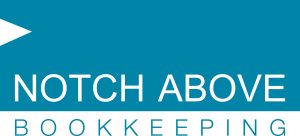ATO Payment Plans
There may be times when cash is tight and paying bills on time difficult
At these times, payment plans with your creditors may be helpful.
But did you know that the Australian Taxation Office (ATO), one of the biggest creditors to small businesses, allows payment of tax debt by instalments as an option?
An ATO Payment Plan is a way for businesses to pay their debt by instalments. Arranging for your business to have an ATO payment plan can provide a legal and convenient way to respond to an overwhelming tax debt.
A payment plan can be set up online via a myGov account, over the phone or by an authorised agent and can help small business owners:
- Manage cash flow
- Repay tax debt
- Avoid unnecessary insolvency action
- Keep business operating
When setting up a payment plan, you need to consider how much you can pay so you can meet each scheduled instalment, including interest that may accrue on any overdue amounts.
You still need to lodge your activity statements and tax returns on time, even if you can’t pay by the due date. This will show the ATO that you’re aware of your obligations and doing your best to meet them.
The ATO has a payment plan estimator tool that can be used as part of your initial discussions on a payment plan that might work for your business.
If the ATO requests that you demonstrate your businesses viability, they will request additional financial information and explanations regarding the need for the payment plan.
Default of a payment plan
If you miss or are late with a payment on your existing payment plan, this will automatically default a payment plan. Failure to lodge activity statements and tax returns on time and paying them in full by the due date will also automatically default an existing payment plan.
By defaulting a payment plan, it creates bad payment history and should be avoided where possible as it will make it more difficult to put plans in place in the future if needed.
Contact us and we can talk to the Tax Office on your behalf to try to arrange a payment plan for your BAS debt. If you are a Notch Above Bookkeeping client currently supported by us, this service is included in your monthly package.




